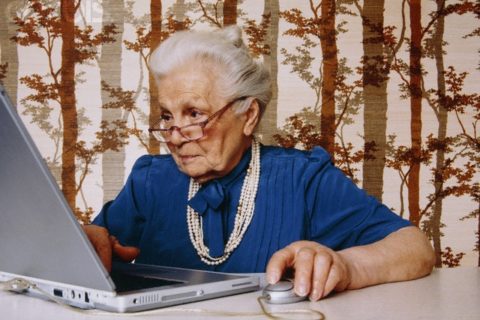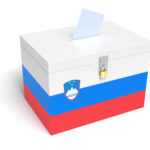Finn Raben
For those of us who have worked for some time in market research industry, we can have quite defined views on the role and importance of ethics in our industry.
But what about those of you that have recently joined the industry? Have you heard on been told about any relevant ethical guidelines in our industry.
For those that, in some part, grew up in the changing digital landscape, unfazed by the shifting boundaries of online privacy and the increase in connectivity. How do you view ethics in market research?
As we continue to work towards ensuring best practices for our industry we want to know what your perceptions are of ethical and behavioural guidelines in our profession.
Do you believe those sorts of guidelines have any role to play, and if so, what is that role? Should such guidelines be an all-encompassing umbrella and measure for everyone, or something that can provide you with a competitive advantage in a tendering process?
I look forward to your thoughts and comments!
Finn Raben Director General ESOMAR



9 comments
[…] in February, Finn Raben posed a question to all young researchers: what are the ethics of research in today’s […]
[…] An Open Question to Young Researchers – Finn Raben of Esomar has a call for feedback from young researchers on their views towards ethical and behavioral guidelines. […]
I believe all ethics in all societies and nations are very similar to each other, like wise same in the industry of marketing or any management discipline. What we need to understand is the basis of human culture we all live in and respect, this might be the way to understand and implement ethics standards/guidelines in marketing.
Ph.D. Candidate,
School of Economics and Management,
Southwest Jiaotong University,
Chengdu 610031, Sichuan, P. R. China.
[…] dann gab es da noch eine spannende Diskussion auf rw-connect, ob es ethical guidelines für die Marktforschung geben sollte? Ein interessantes Argument war hier […]
Hi Finn
I feel that the best way the young researchers can understand the nuances of research ethics is by observing their seniors. If my seniors are insisting and following the guidelines, I would naturally imbibe the same. I personally feel that ethics is more like a culture that needs to be passed on from one generation to another and it evolves over time. There needs to be a blanket set of guidelines listing the best practices in ethics for all researchers. However, this “blanket” needs to evolve with time when newer methodologies come in!
Thanks,
Tanvi
Co-creation is a new(ish) methodology that’s starting to become more mainstream. For me, the ethics associated with this new methodology are still to be explored.
At its best (and in the work that we do at Promise Corp) co-creation is an empowering tool for organizations: it diffuses old-fashioned, top-down hierarchies, and infuses consumer-centricity to the core. As a result it helps organizations produce excellent new products & services.
At its best (like in our work at Promise Corp) co-creation also benefits consumers: the practice of taking part in co-creation can satisfy latent creative desires and needs. PLUS co-creation makes sure that the products and services available to them are actually what they want.
But, does the lack of need for significant financial reward for all these great ideas leave consumers at risk of exploitation?
Practitioners need to be sure that they really are working hard to satisfy consumers latent needs: as an industry we need to develop a set of guidelines for the ‘knowledge economy’ that we now operate in. And these guidelines need to respect the value-exchange between brands and consumers.
If we don’t, then our co-creators will feel exploited. And that’s a problem for us all.
Makes sense to me Elias and I whole-heartedly agree.
Ethics and guidelines are needed – which is what ESOMAR is there for 😉 BUT I think there should be specific guidelines on innovation in research which encourage innovation and the introduction of the latest and emerging technologies in collecting data which we, and ESOMAR need to keep up with. For instance, what are the ethics in using Augmented Reality for research? What are the guidelines for Gamification (as I already emailed you about Finn) and what are the best practices for Social Media based surveys? So much new technology, so many platforms and I think agencies who harness those have to make the rules up and their own best practices as they go, because the rest of the industry might not be keeping up?
With RTG, we’ve not had anyone to turn to as we’ve been developing our gamification platform for research but that doesn’t mean I wasn’t going to start in and get clients on board. In that case, you could say that the ‘young ones’ in research would sacrifice INDUSTRY WIDE ethics and guidelines for innovation, when they’re doing something different and especially if there are no guidelines for what they want to do.
Which is why Finn, I emailed you about my experiences to put some Best Practices in place 🙂
My take on this would be that ethical guidelines are in essence only necessary for the unethical amongst us.
In principle, we should all be smart and ethical enough, so that we need no strict guidelines and paths to follow. We should incorporate and ‘live’ the ethical standards instead of checking boxes.
That being said, I feel most for general guidelines, such as Google’s “Don’t be evil” (unfortunately they kind of misunderstood their own rule:).
In this world, people voluntarily give away their privacy if they get something in return that they see as valuable. Ethical guidelines should be adapted to that reality, but keeping in mind that some people need to be protected against themselves too.
So my idea would be: teach market researchers what is good and bad, help them research the ethical way by understanding ethics, rather than building fences and carving out guidelines. Makes sense? 🙂
Ethical issues act like a barrier in the development of fields like neuromarketing, but at a certain extent they are a regulatory mechanism for the progress of the field. So an initiative to develop a guideline for ethics in neuromarketing research will be a step forward.
Monica Diana Bercea (PhD Student, Neuromarketing Research)